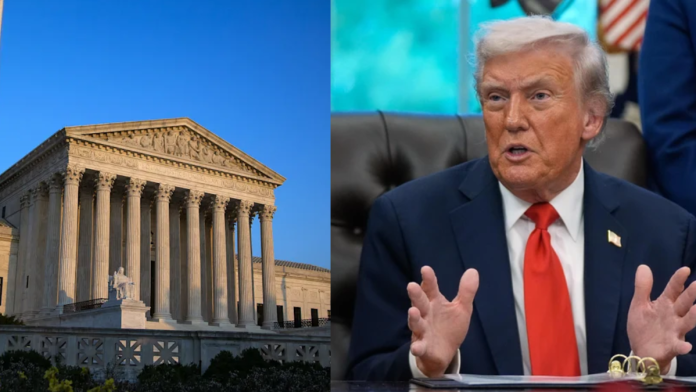The SCOTUS heard a major case on Wednesday about the powers of President Donald Trump to impose global tariffs without approval from Congress. The case affects prices paid by American families, the power of the president, the economy, and relations with other countries. Several justices sounded doubtful about giving a president such broad authority.
If the tariffs are struck down, the U.S. government may have to refund tens of billions of dollars to businesses that already paid them. If the tariffs are upheld, it would confirm a major expansion of presidential power, which Trump described as “one of the most important cases in the history of our country.”
Why the case matters
This case focuses on whether the 1977 International Emergency Economic Powers Act (IEEPA) allows a president to impose tariffs without limits. The Constitution gives Congress the power to set taxes and duties on imported goods. But Trump used IEEPA to declare emergencies related to immigration, drug trafficking, and trade deficits, and then imposed tariffs ranging from 10% to over 100% on many countries.
The argument from Trump’s legal team, presented by Solicitor General John Sauer, is that the tariffs are “regulatory” and not meant to raise money like taxes. He said any money collected is only a side effect. But Trump had also publicly spoken about the billions earned from the tariffs.
Lower courts — including the Court of International Trade, the U.S. Court of Appeals for the Federal Circuit, and a Federal District Court in Washington, D.C. — ruled against the tariffs, stating that the declared “emergencies” did not meet the legal requirement of being “unusual and extraordinary.” They also noted that the IEEPA was never intended to be used for imposing tariffs. Despite these rulings, the tariffs were allowed to remain in place until SCOTUS delivers its final decision.
The legal dispute eventually reached SCOTUS after multiple appeals, as the administration sought to overturn the lower court findings. The upcoming SCOTUS ruling will define the limits of how far a president can go when using emergency powers to set trade measures.
$100 billion at stake: U.S. Supreme Court to rule on legality of Trump-era emergency tariffs
Key exchanges inside the SCOTUS courtroom
Chief Justice John Roberts questioned whether the tariffs were, in reality, taxes that “reach into the pockets of the American people,” which is a power given to Congress. He stressed that taxing power is different and should not be shifted to the president. Sauer replied that the tariffs were regulatory, not taxes.
Justice Neil Gorsuch raised concerns that the interpretation used by the Trump administration would cause a “one-way ratchet toward the gradual but continual accretion of power in the executive branch and away from the people’s elected representatives.” He pointed out that the same logic could allow a future president to declare a climate emergency and impose tariffs in the same manner.
Justice Samuel Alito noted that emergency powers given to presidents are usually broad because emergencies require fast action. Justice Amy Coney Barrett asked what would happen if SCOTUS ruled the tariffs unlawful. Neal Katyal, representing the challengers, said refunds would require administrative protests and may take time. Barrett responded, “So, a mess.”
Impact on businesses and consumers
Tariffs have become a major source of income for the government, estimated to bring in $2.8 trillion over the next decade, according to the Committee for a Responsible Federal Budget. Many business owners say they are closely watching the SCOTUS case because the decision could change how U.S. companies plan imports, pricing, and future investments.
Learning Resources Inc., a children’s toy manufacturer near Chicago, paid $2.3 million in tariffs in 2024. CEO Rick Woldenberg said the higher 145% rate would have cost $100 million, making it impossible to continue operations normally.
Wild Rye CEO Cassie Abel shared that the U.S. lacks a strong textile industry, and her ski and cycle gear is made in China because the supply chain does not exist in the U.S. She said the tariffs could push her out of business. Flora founder Aabesh De said tariffs “crippled” innovation and delayed new products, calling it a “man-made existential crisis.”
Even families have felt the burden, as economists estimate that the tariffs added over $1,700 to the average household’s yearly expenses due to higher prices on everyday goods like clothes, toys, electronics, and home items.


